STEM Activities for Secondary School Children (11-16 years)
By Dr Jennifer Martay, PE
Course Leader for Medical Engineering at Anglia Ruskin University
I am a Biomedical Engineer with 3 children. This page suggests games, kits, and activities to teach STEM skills to secondary school children (11-16 years).
S: Science
At this age, children are ready to delve into the details of their favorite areas of Science. Educational board games
now offer an opportunity to learn (either in the classroom or at home) this material in a new, fun, interactive way.
The games are fun for children and adults to play together and offer a unique option for quality family nights. Unlike
many of the games suggested for younger age groups, these games are not often found at charity shops so will need to be
bought new (which can be very expensive) or from second-hand sales (which can still be fairly expensive). If
your child has a group of school friends they generally play with, it might be worth asking if each family wants to
buy one of the games and then pooling the games for all of the children to share.
-Biology: "Cytosis: A Cell Biology Game" from Genius Games.
Players: 2-5
Recommended ages: 10+ years
Time to play: 60-90 minutes
Paid: £40 new
Science Concepts: cell biology, nucleus, free ribosomes, smooth ER, rough ER, golgi apparatus, plasma membrane,
mitochondria, enzymes, hormones, receptors, cell detoxification, antibodies and viruses.
Competitive game. Build hormones, receptors, and enzymes within a cell to win Health Points and the game!
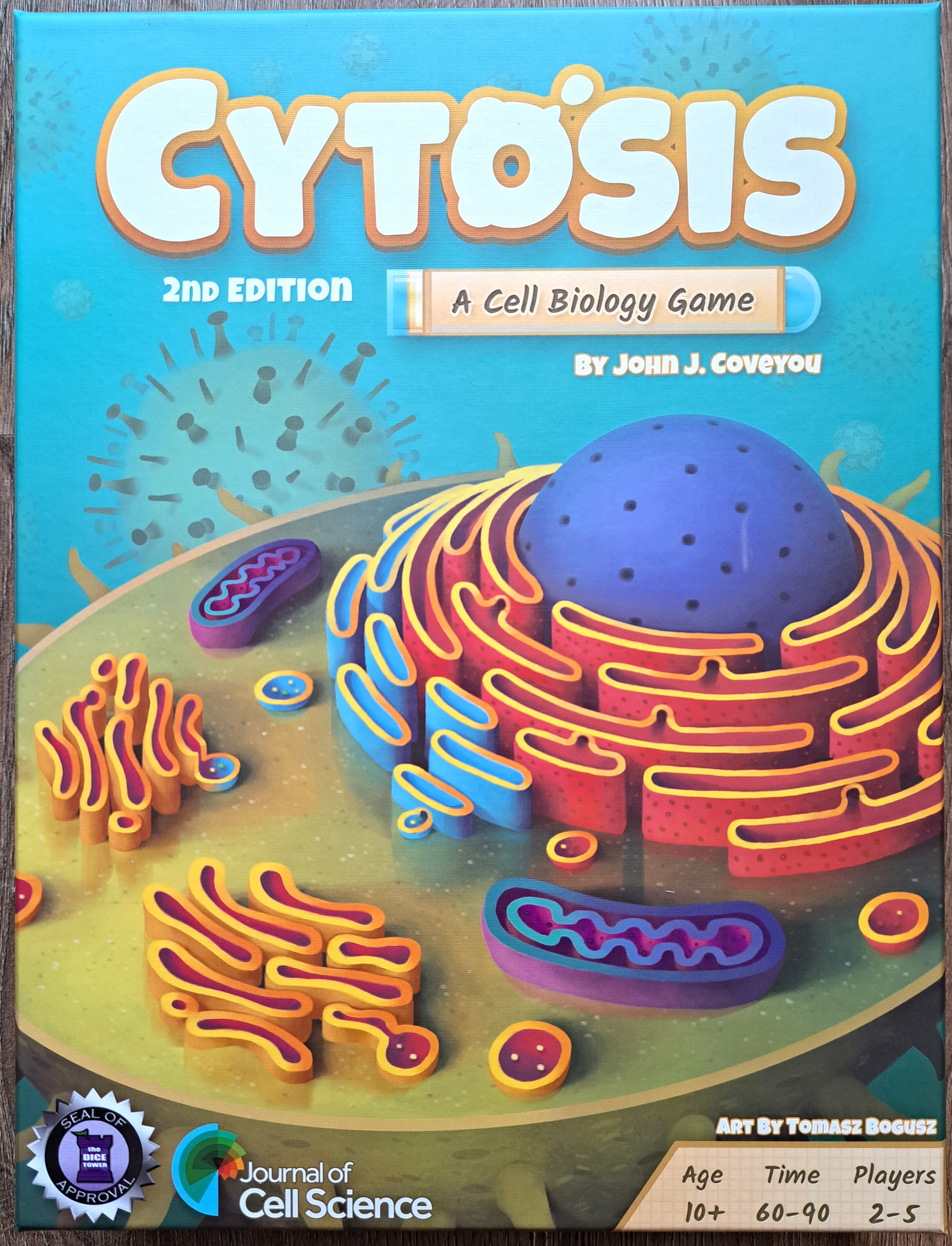
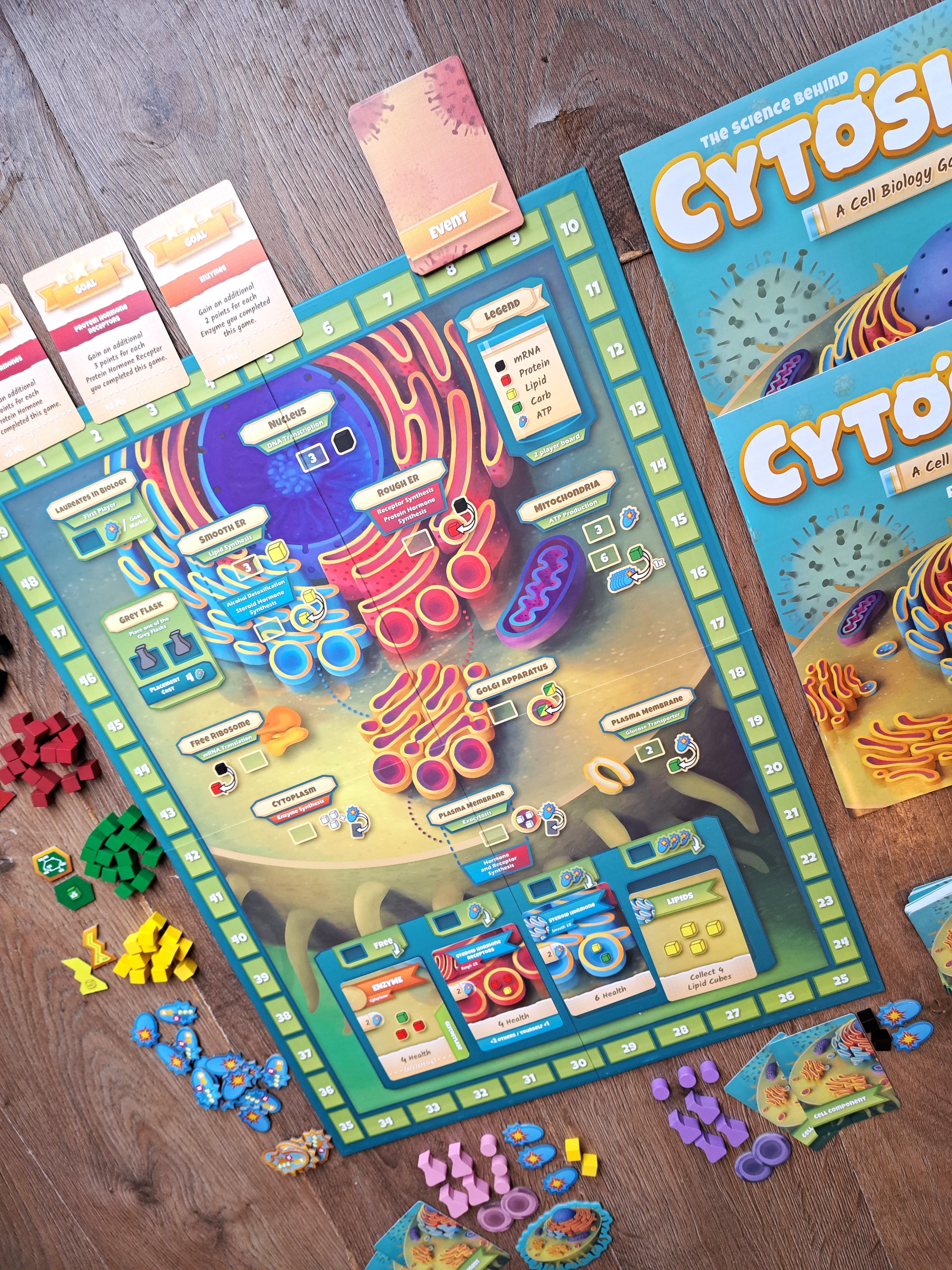
-Chemistry: "Periodic: A Game of the Elements" from Genius Games.
Players: 2-5
Recommended ages: 10+ years
Time to play: 40-60 minutes
Paid: £20 second-hand sale (£40 new)
Science Concepts: structure and function of the periodic table; periodic trends of atomic number, atomic radii, atomic
mass, and ionization energy.
Competitive game. Use your knowledge of periodic table trends to complete your research track and win the game!
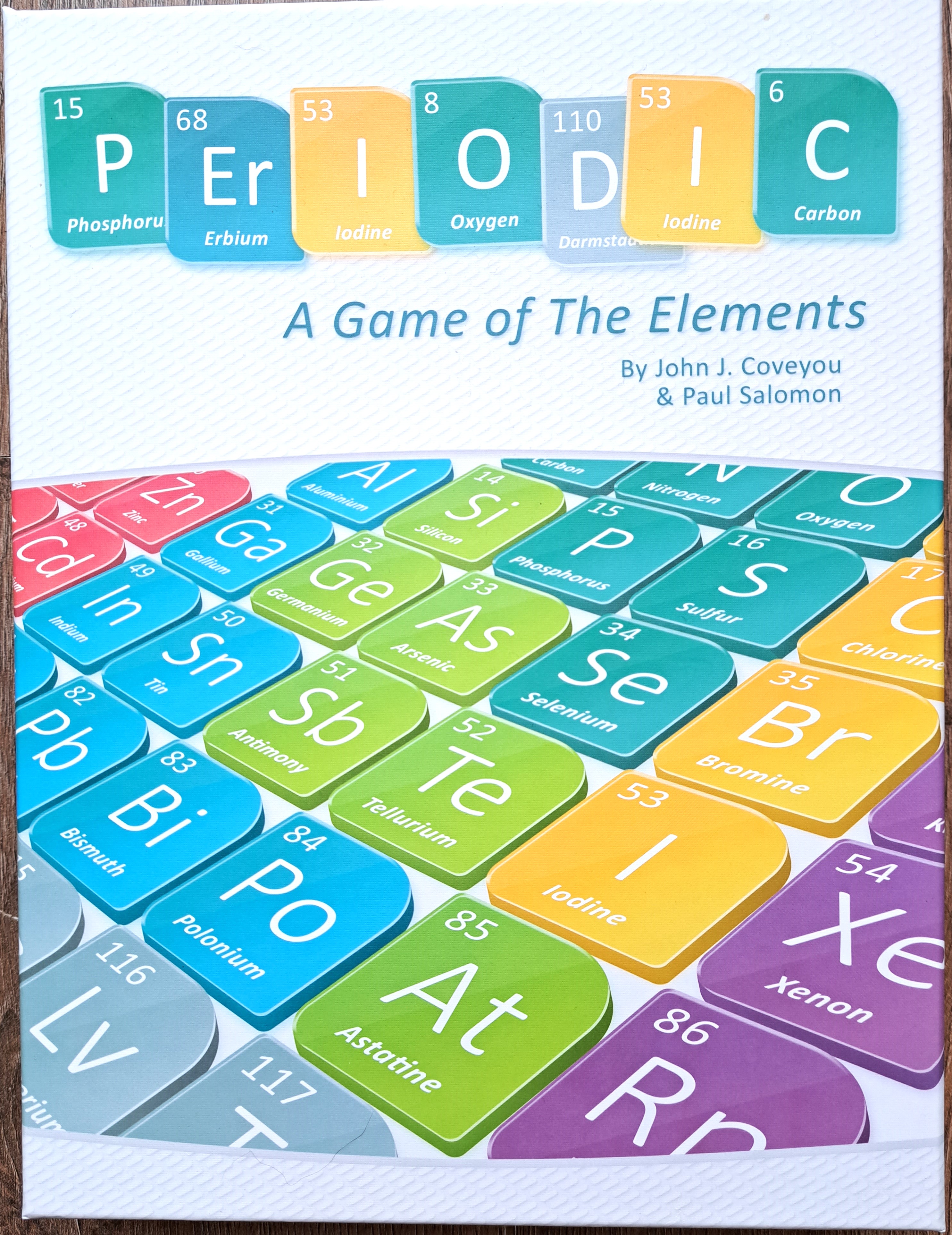
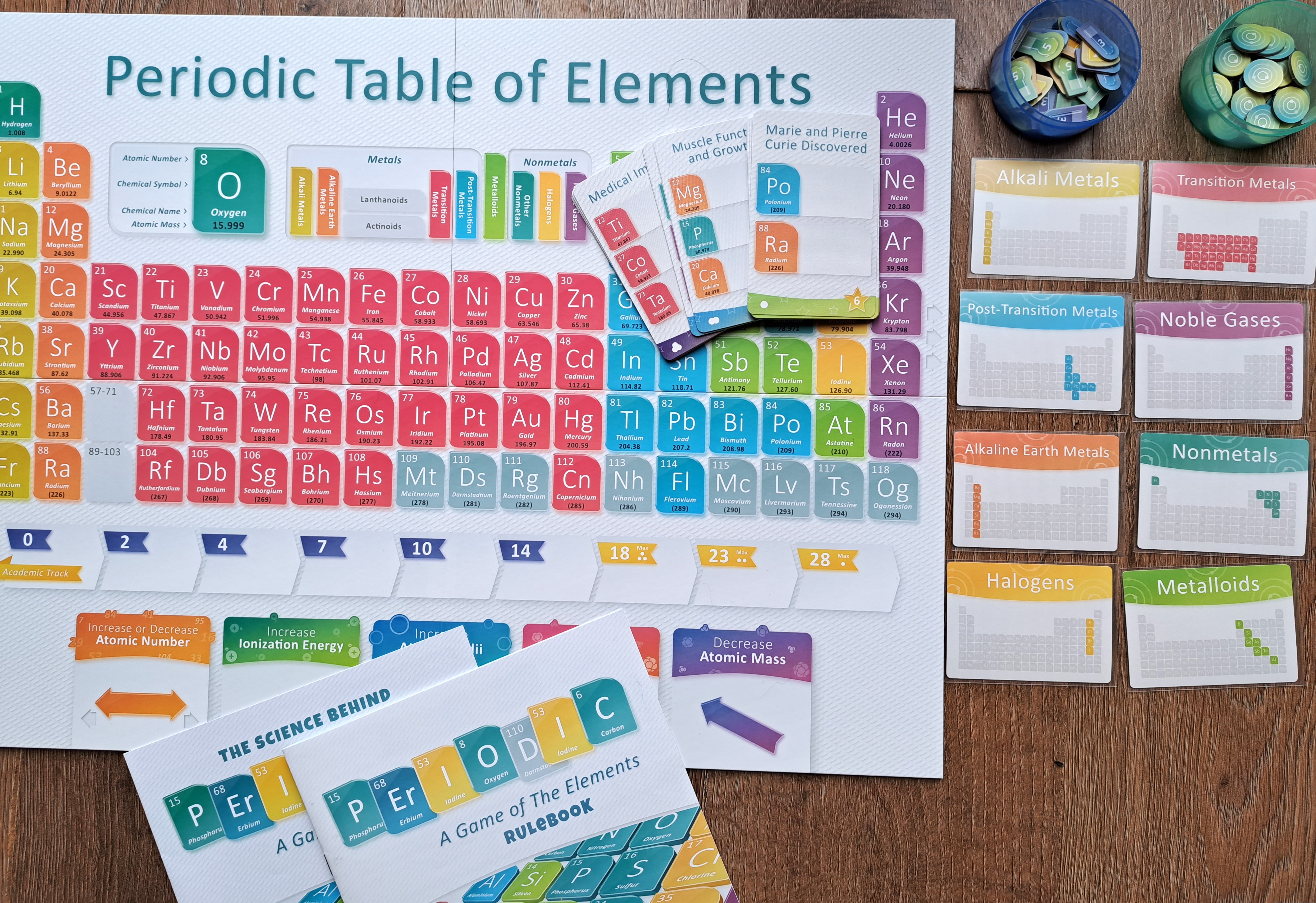
-Physics: "Entanglion" from IBM Research.
Players: 2
Recommended ages: 14+ years
Time to play: 45 minutes
Paid: £7 for hard-copy (Can be downloaded Free from GitHub to Print and Play)
Science Concepts: Quantum computing, including qubits, superposition, entanglement, measurement, and error; hardware
and software components involved in building a real quantum computer.
Cooperative game. Navigate galaxies to collect parts from a quantum computer. Reconstruct the computer to win the game!
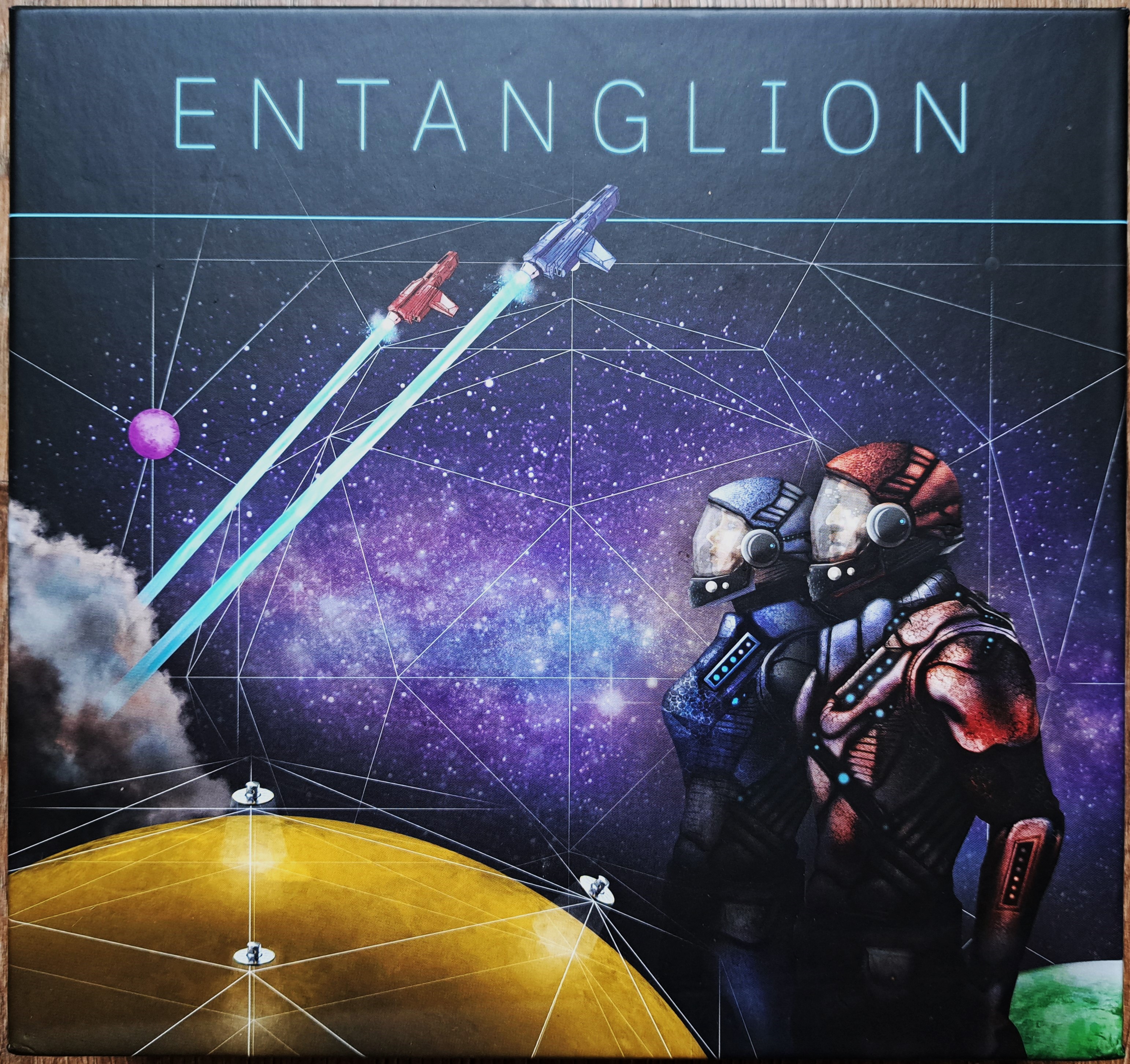
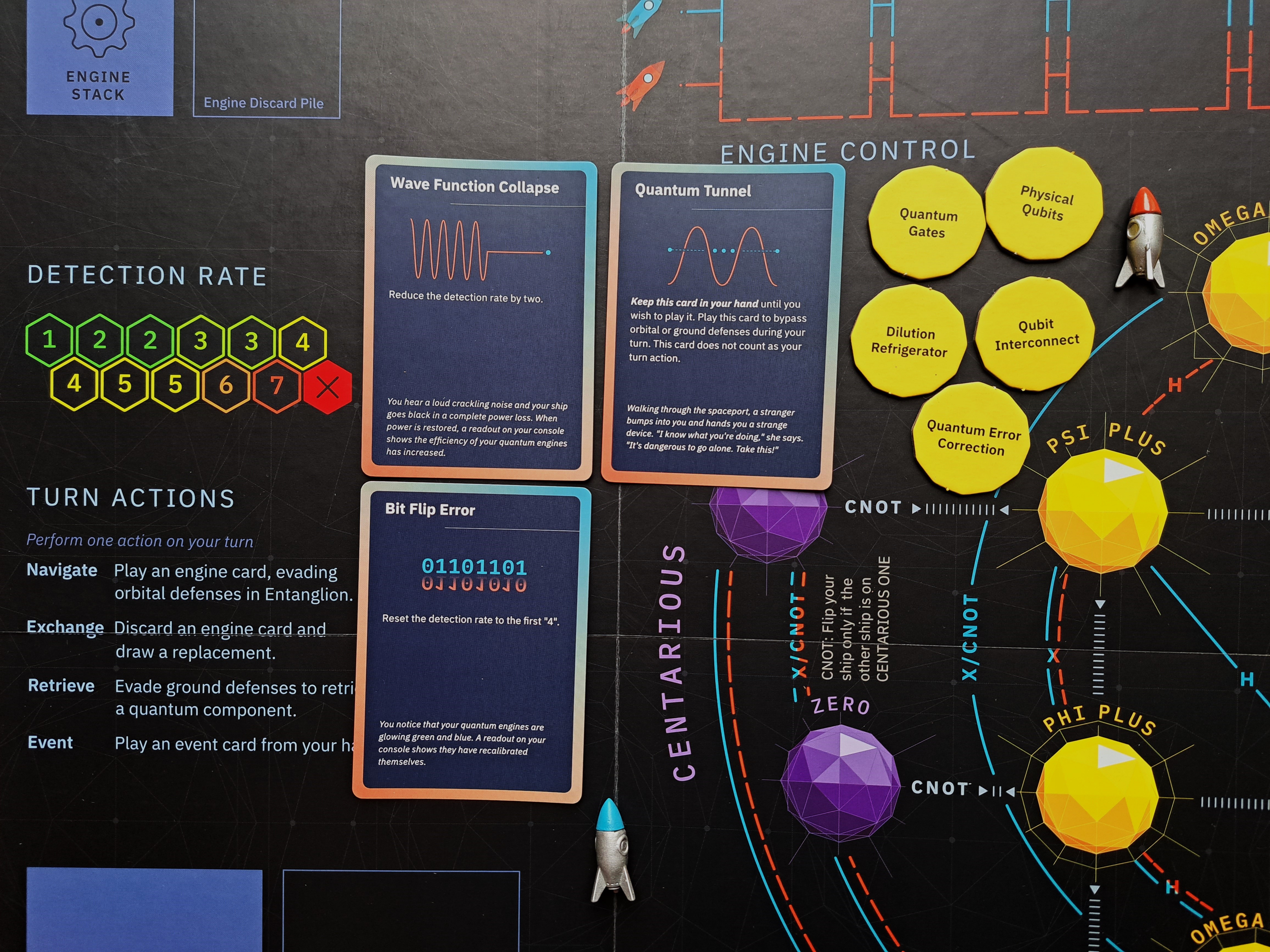
-Medicine: "Immunization: The Game" from Immunitarium.
Players: 1-4
Recommended ages: 14+ years
Time to play: 60 minutes
Paid: Free for Independent Feedback on Game ($60 new, Can play online with cheaper price)
Science Concepts: Develop effective vaccines by discovering the best antigenic formulations, Launch clinical trials,
Manage vaccine production capacity, Define appropriate vaccine prices, Negotiate public opinion via vaccine sale prices.
Competitive, cooperative, or solo game. Develop, test, and manufacture vaccines to fight diseases. Quite a bit of
mathematical reasoning. Beautiful artwork.
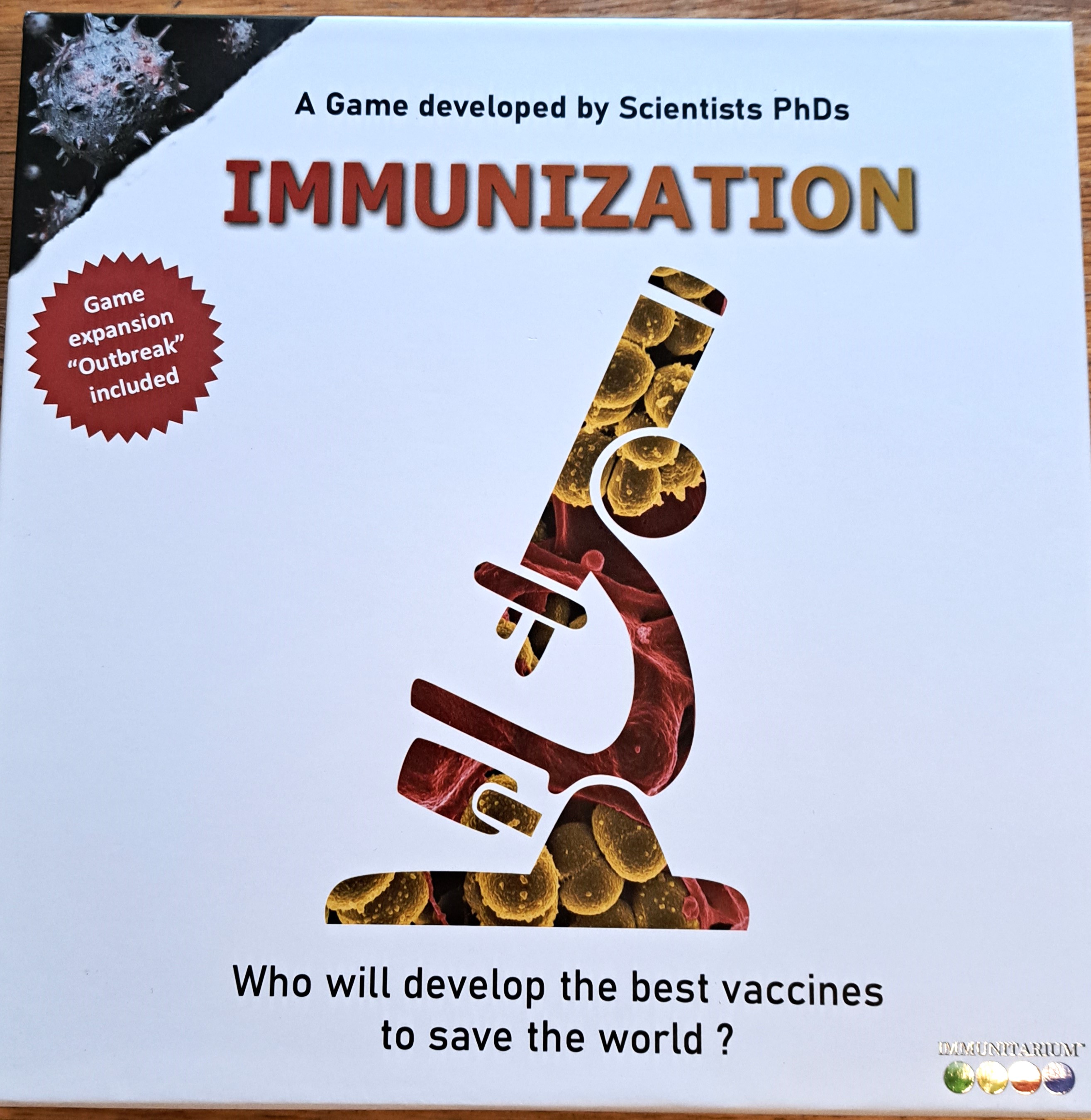
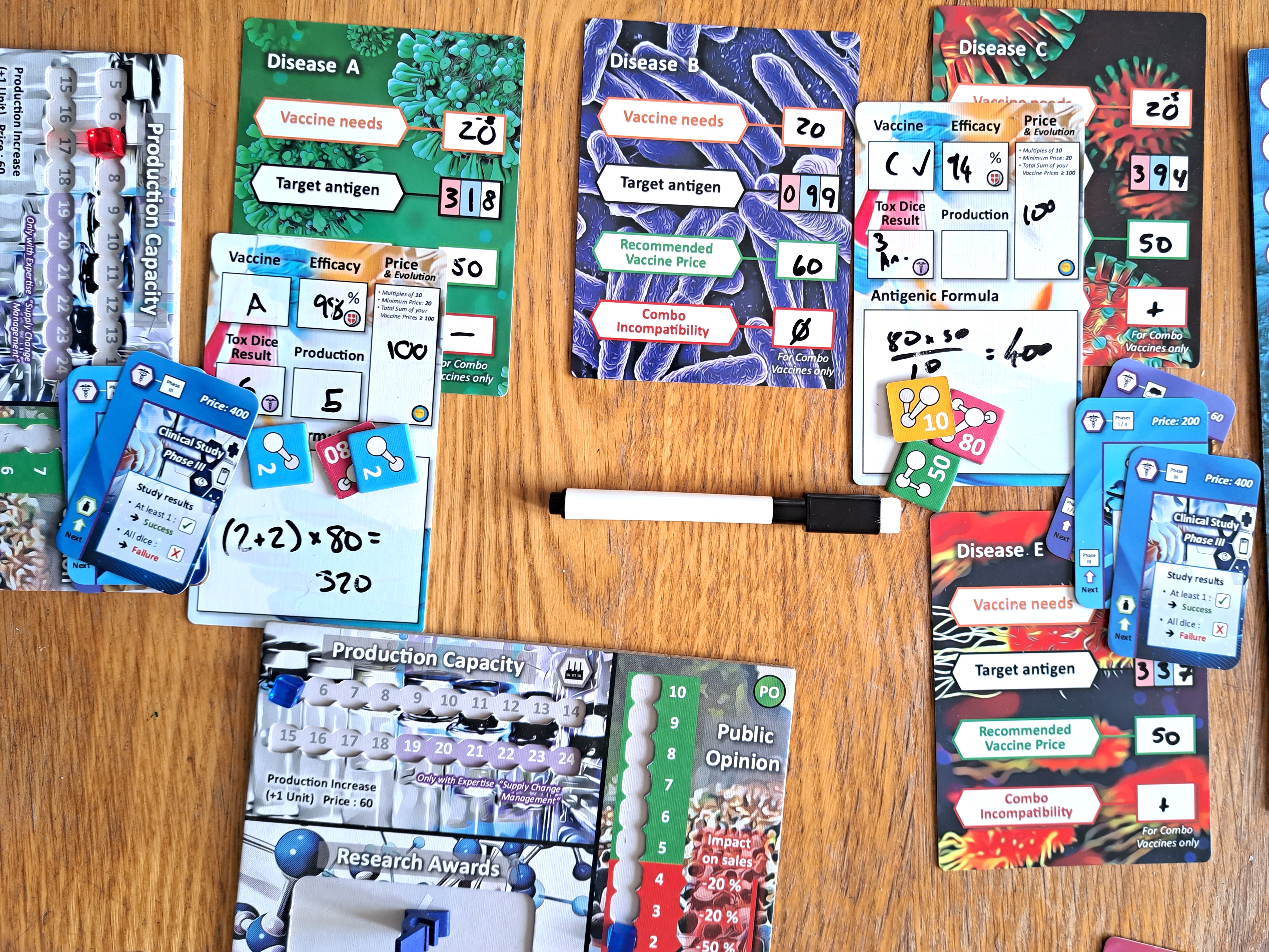
-Famous People: "STEM: Epic Heroes" from Mythic Lab.
Players: 2-4
Recommended ages: 13+ years
Time to play: 15-30 minutes
Paid: £10 second-hand sale (£21 new)
Science Concepts: Steps of Scientific Method, Famous people from different fields of STEM.
Competitive light game. Find color/themed-matched cards for each of 5 steps of the Scientific Method to win. I
bought for the beautiful artwork and introducing the different STEM figures to my kids.
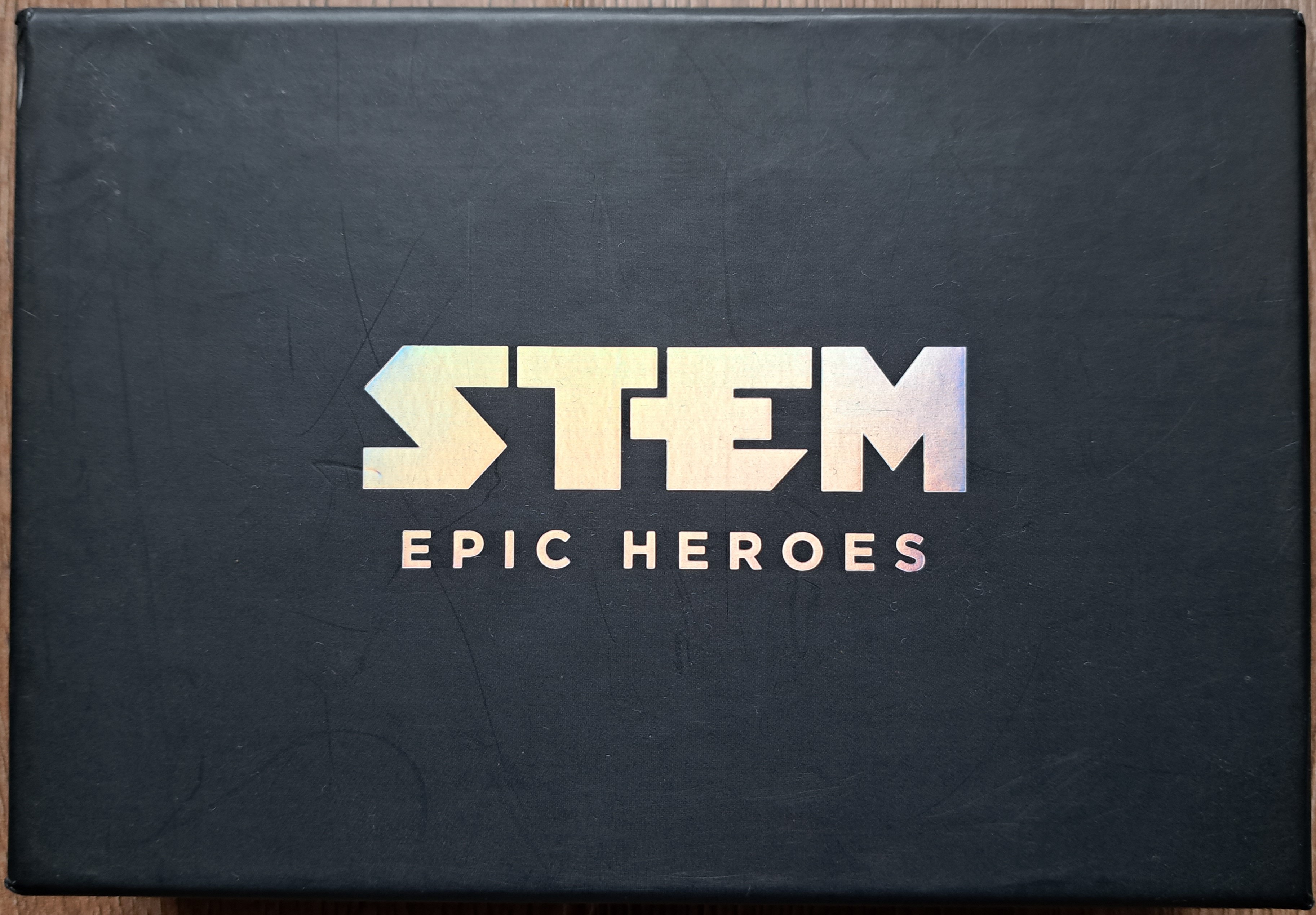
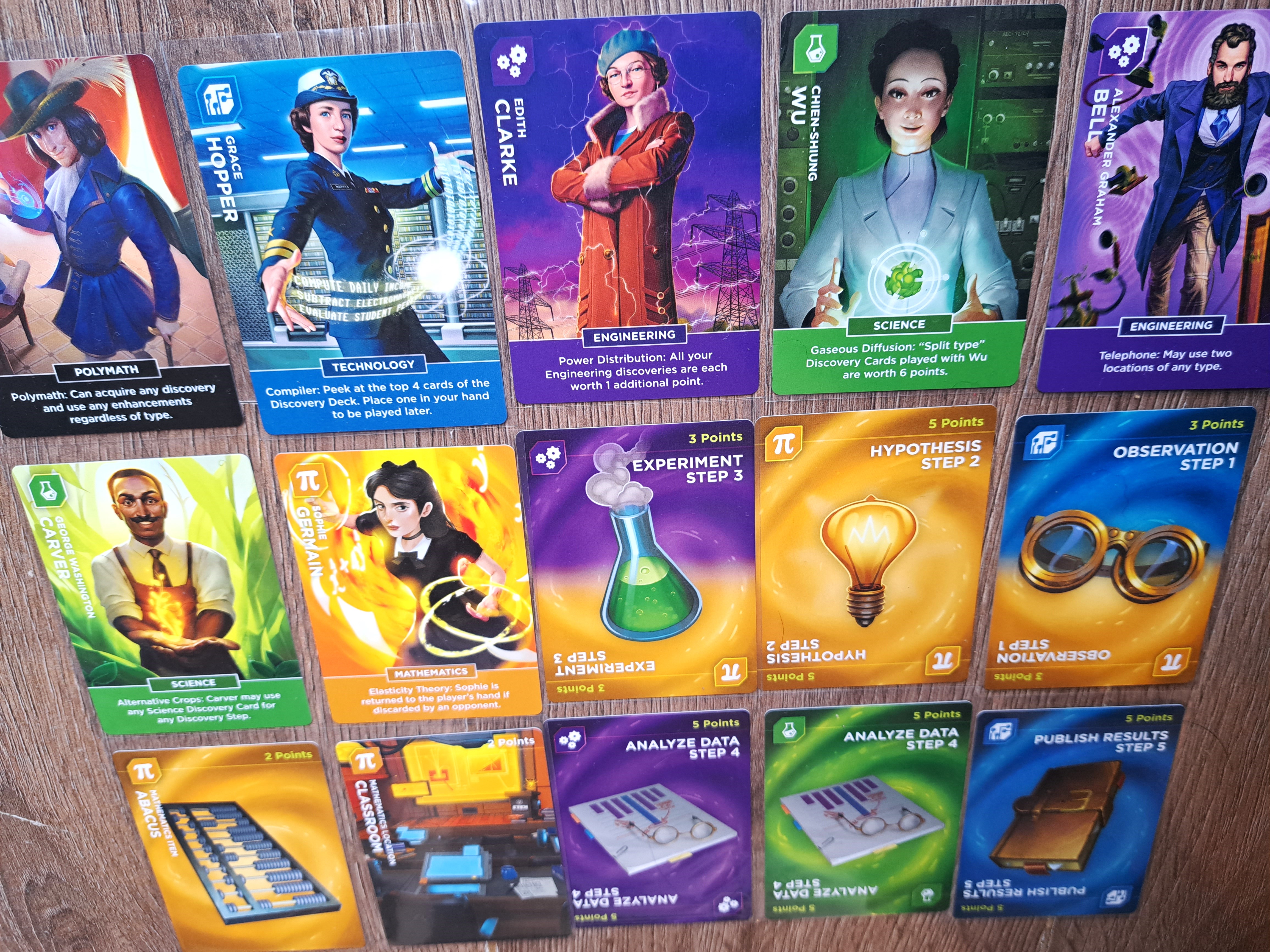
T: Technology
At this age, Technology focuses on increasing familiarity with specialist equipment and computer capabilities.
Activities range from free (learning computer languages) to mid-range (building electronics kits) to very expensive
(3D printing). Specialist technology will likely need to be purchased new.
-Building Electronics: "FM Retro Radio" from Eight.
Players: 1
Recommended ages: 14+ years
Time to play: 4-5 hours
Paid: £20 online
This kit contains everything (other than a 9V battery) you need to build an FM radio. Each step is clearly
explained in an instruction manual, with pictures showing where each component needs to go. The radio worked
surprisingly well. A Secondary School student can likely construct the radio with minimal to no adult supervision.
Pros: Great introduction to electronics. The manual explains what each component is called and does - and shows
step-by-step how to built the radio. The radio is fun to listen to after - a tangible thing to build! Many similar
kits required soldering - this kit does NOT require soldering.
Cons: £20 is an investment, albeit a relatively small one for an electronics set. It can be difficult to strip the wires
and place them (there are a lot of wires on the bread board by the end)!
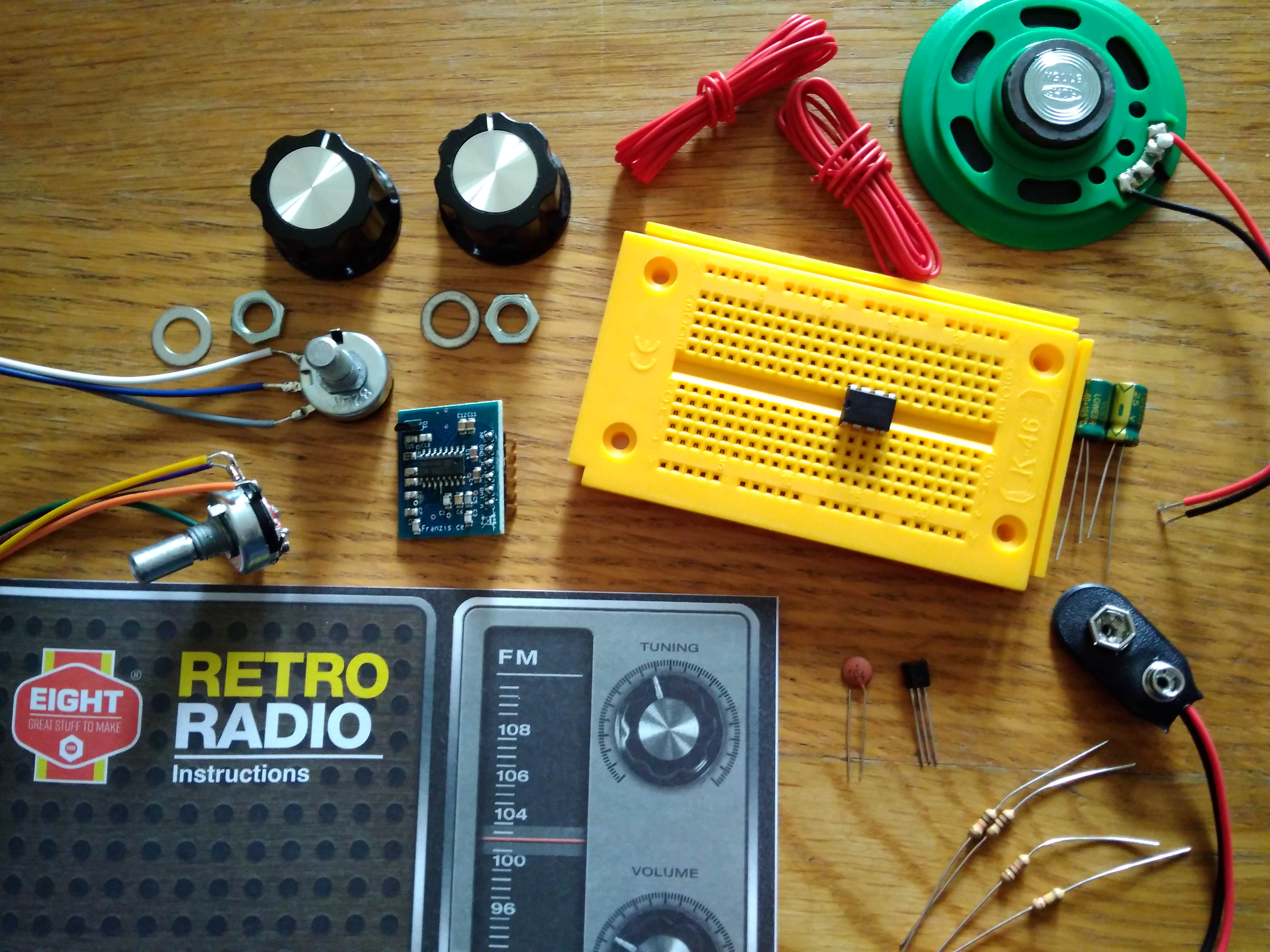
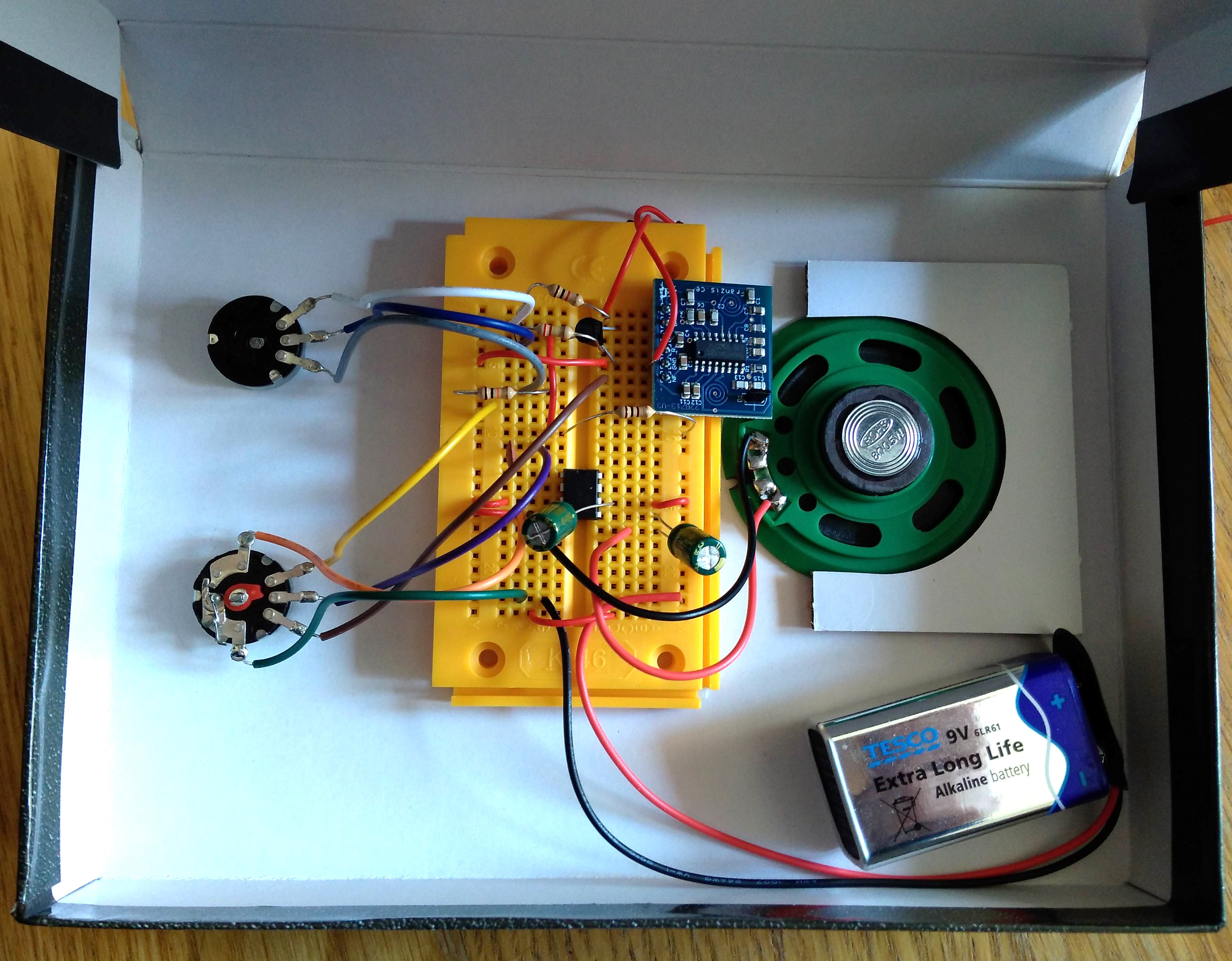
-History of Technology: "Progress: Evolution of Technology" from NSKN Games.
Players: 1-5
Recommended ages: 12+ years
Time to play: 45-90 minutes
Paid: Free from second-hand sale for Science Festival (~£20 second-hand, $48 new)
Competitive game. Use 200+ examples of technology to build up a branch of technology (military, science, culture)
through the Ancient, Middle, and Industrial Eras.
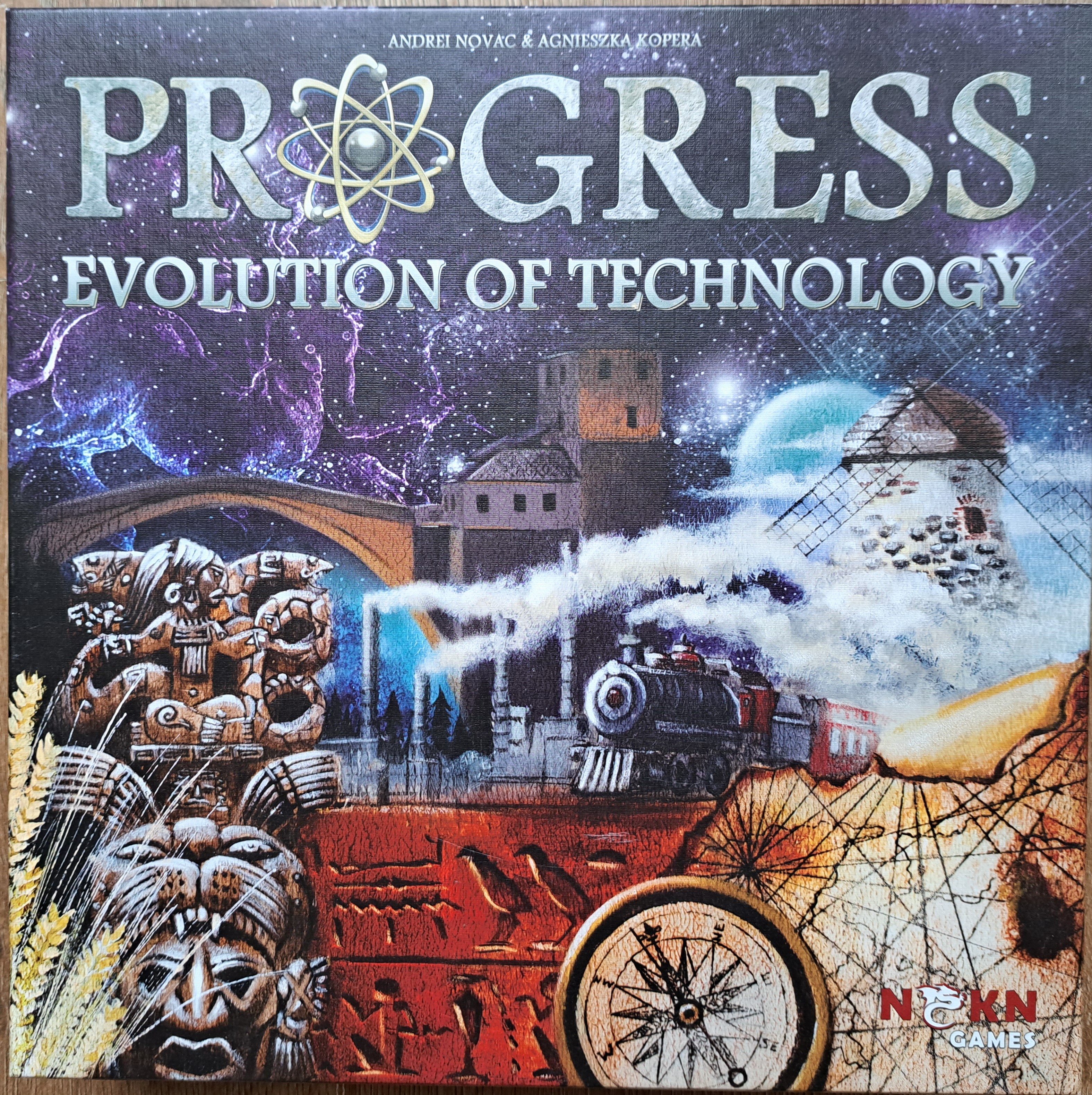
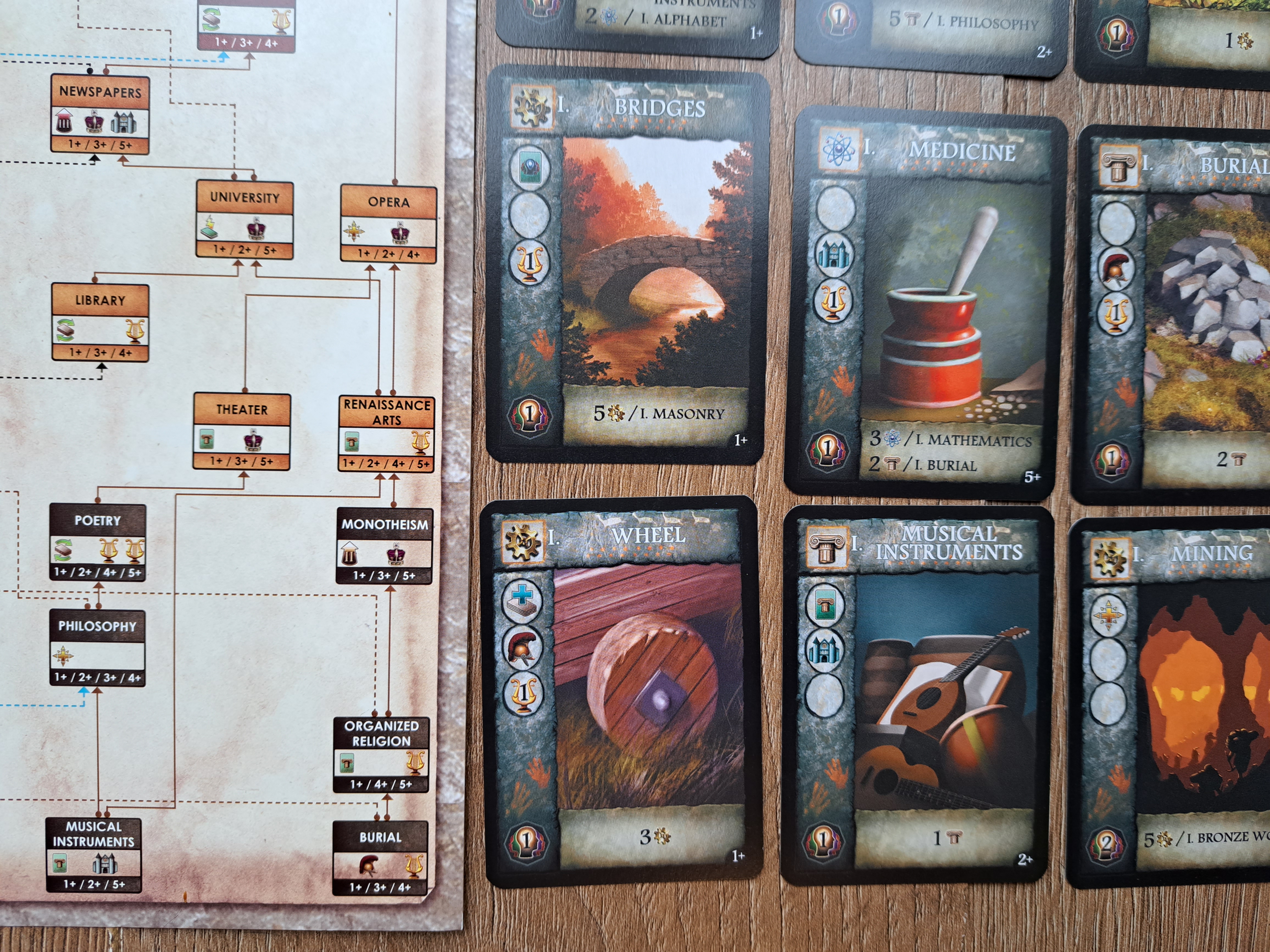
E: Engineering
At this age, Engineering focuses on learning how things work through building and troubleshooting machines.
Some children will prefer building from kits, with step-by-step instructions. I have selected some kits below.
There are many similar kits that also teach these skills. These kits will likely need to be bought new, which can
be expensive - so I suggest looking online for these or similar kits which are on sale.
Some children will prefer disassembling/reassembling actual machines. I recommend finding broken items people are
giving/throwing away to work on - but be very careful of electrical/mechanical parts!
-Building Electronics: "Internet of Things Smart House" from Keyestudio.
Players: 1
Recommended ages: not listed
Time to play: 5-10 hours
Paid: $61 online
This kit has everything (minus battery) that you need to build a functioning smart house. The house has temperature sensors
that turn on a fan, moisture sensors that open/close the window, a rotating door, LEDs, smoke alarms, RFID door keys, etc.
The instructions show exactly how to create the house, and the codes for using the house are all provided. Great
electronics kit! I've written a more detailed review here.
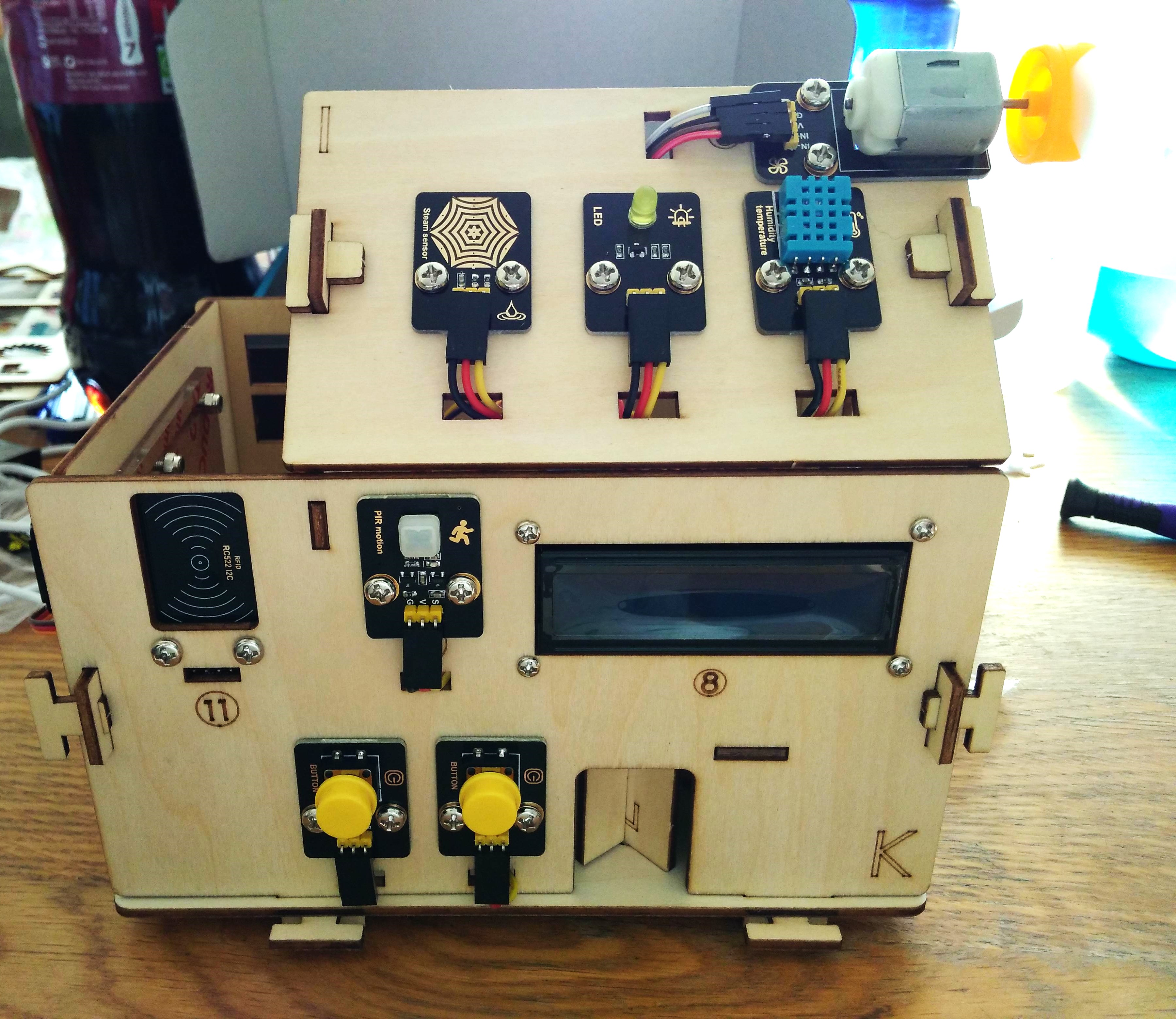
-Learn about Machines: "Haynes Build Your Own Internal Combustion Engine" from MachineWorks.
Players: 1
Recommended ages: 10+ years
Time to play: 2-4 hours
Paid: £40 online
I knew nothing about Internal Combustion Engines before working on this kit. The manual showed me exactly how to create
the engine, and the downloadable app showed me how the engine works. Now I can talk about the parts and functions of the
engine with confidence. Great buy! I've written a more detailed review here.
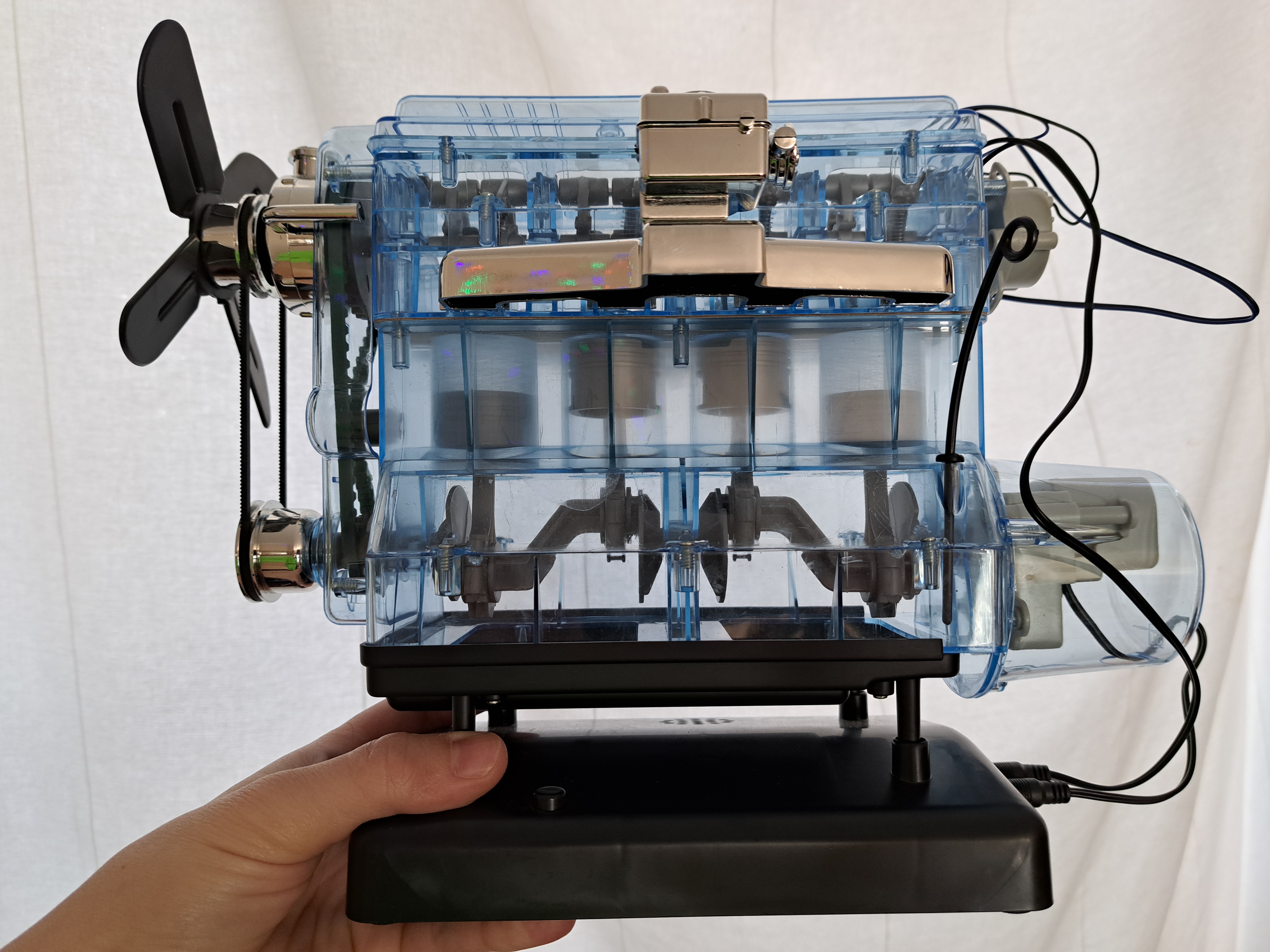
-Logic Puzzles: "Link" from Dr Wood's Mind Challenge Series.
Players: 1
Recommended ages: 8+ years
Time to play: 10+ minutes
Paid: 50p from charity shop
Arrange 8 tiles in a grid (purposely no 9th tile) to match colours on neighbouring edges AND the empty space.
I left centre space open, but potentially any space can be empty as long as tiles are arranged around the empty space?
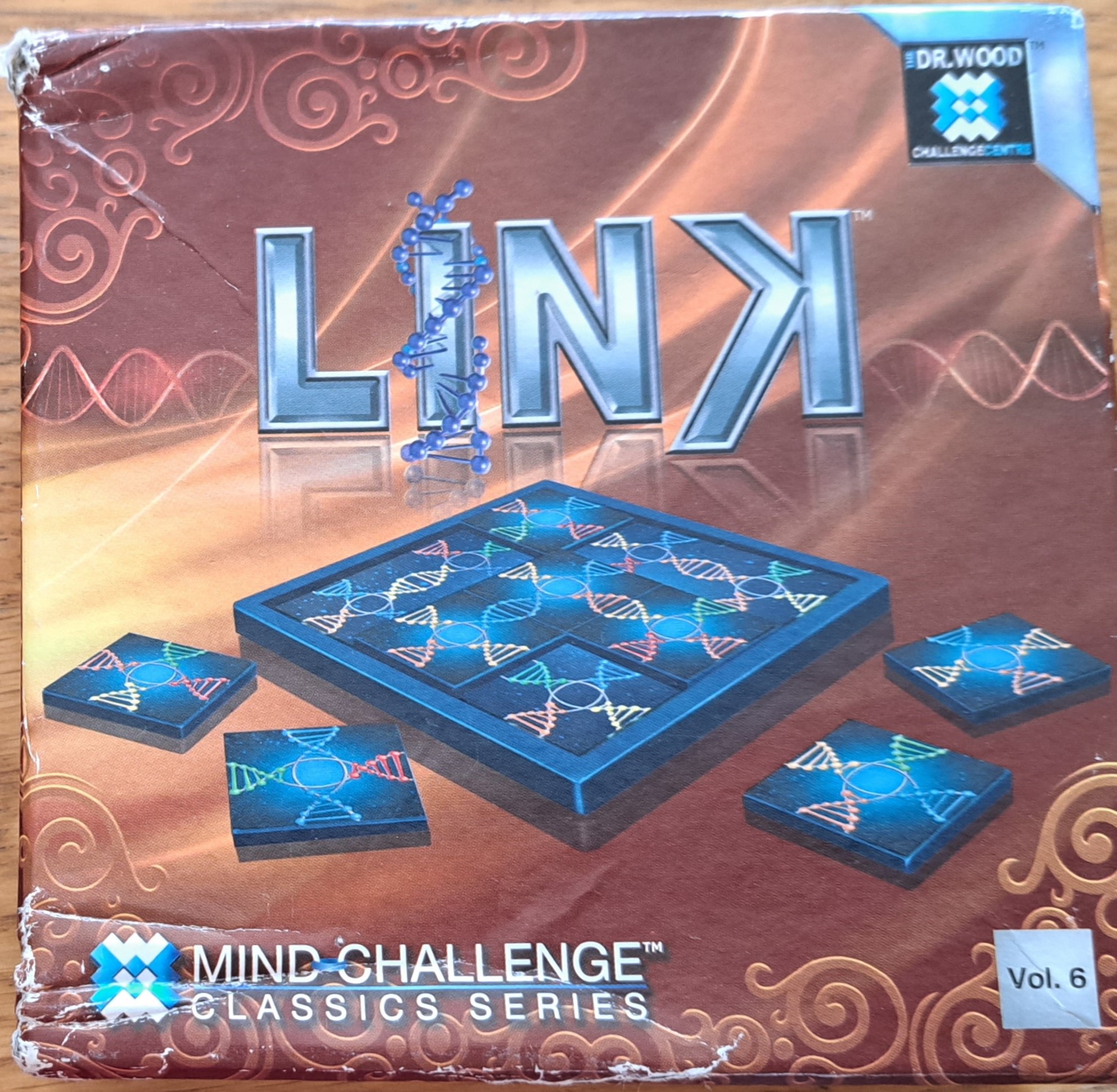
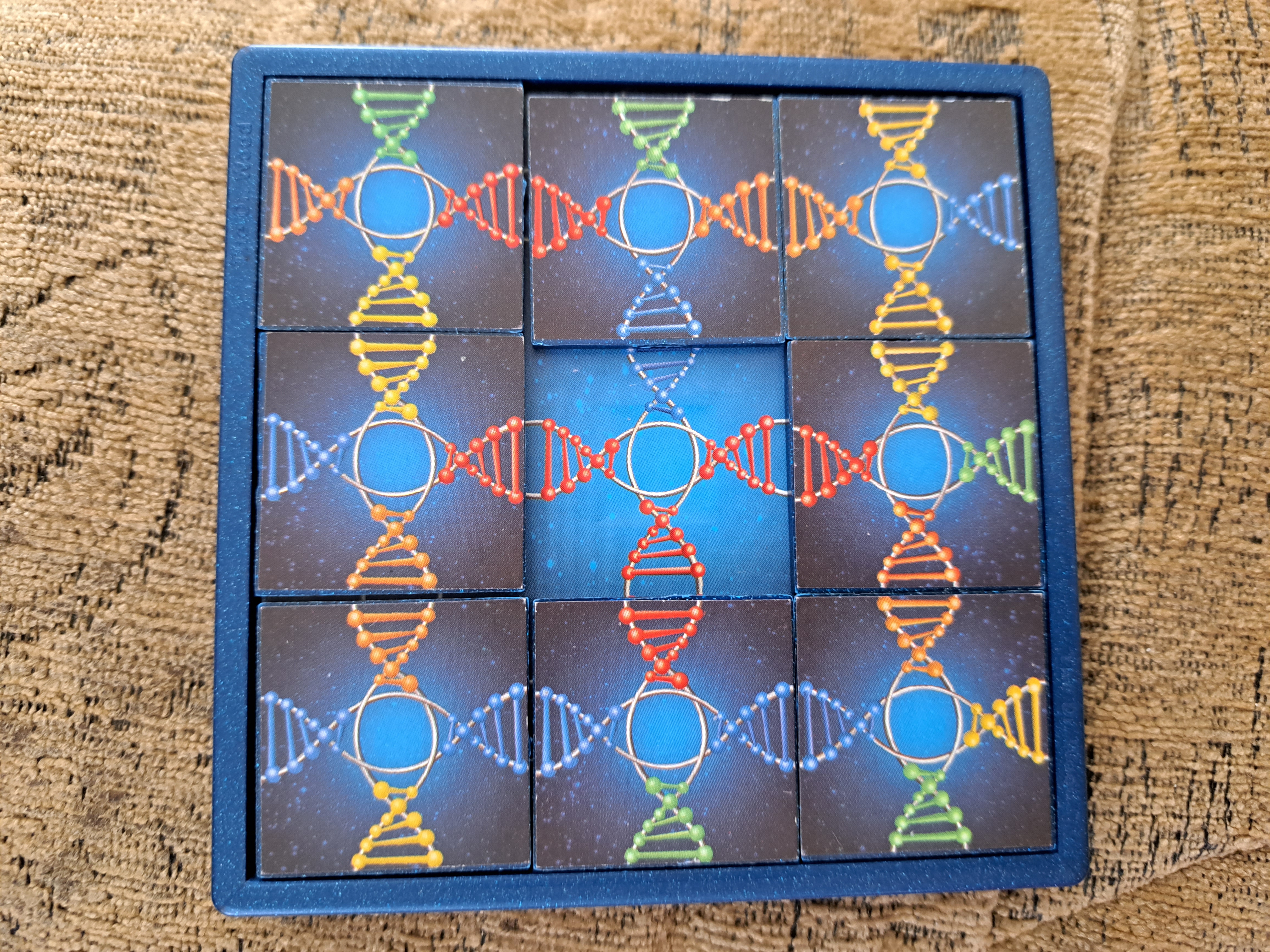
M: Mathematics
At this age, Mathematics focuses on understanding the inner workings of computers, principles of economics, and
solving mathematical problems using computers.
-Learn about Computers: "Turing Tumble" from UpperStory.
Players: 1+
Recommended ages: 8+ years
Time to play: 30+ minutes
Paid: £10 second-hand sale (£65 new)
Use the different switches to direct where the marble goes as it falls down the board. There is a book with different
challenges to work out. Fun game, although bit fiddly to load and unload the tiny marbles (also choking hazards everywhere!).
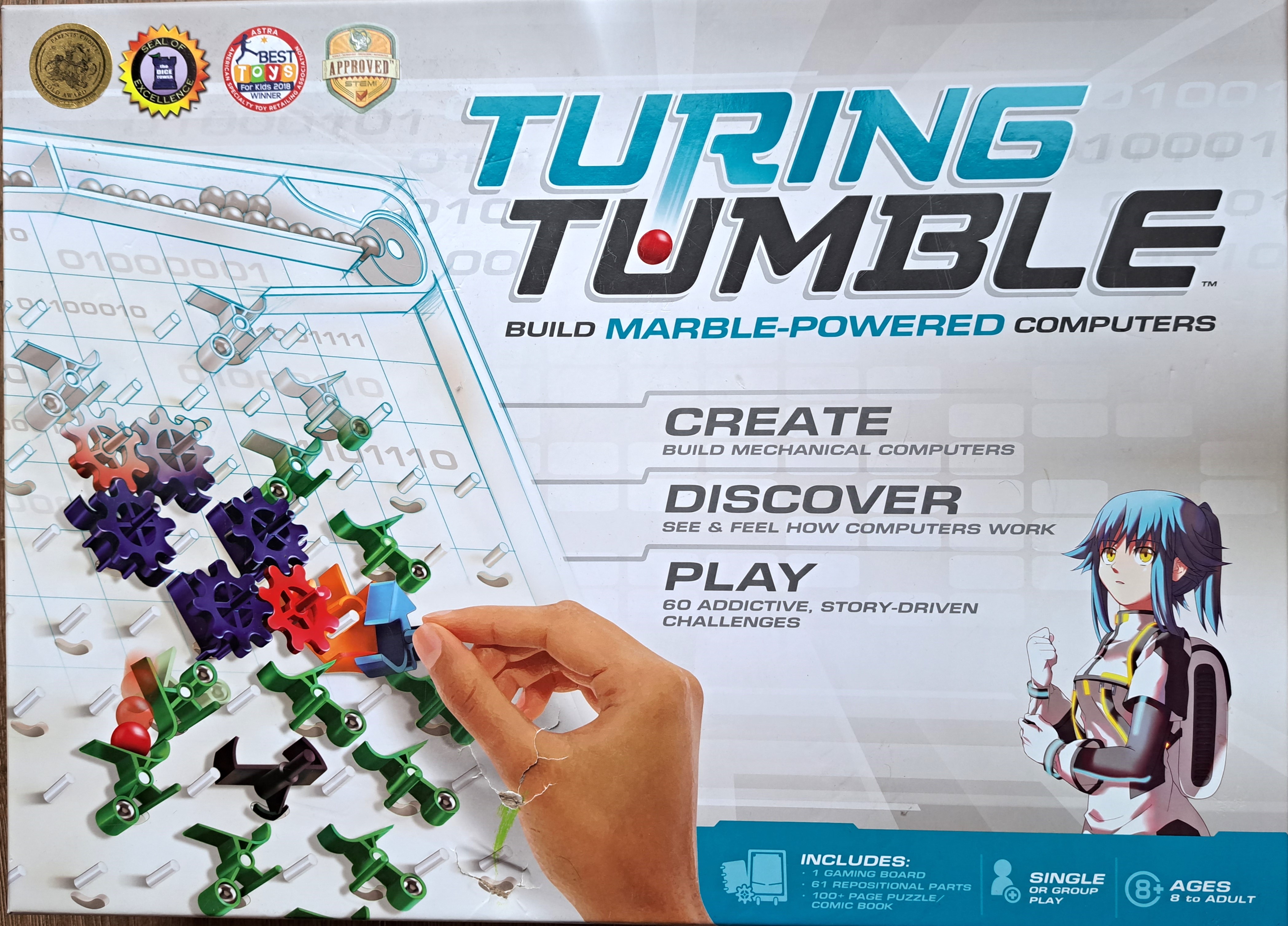
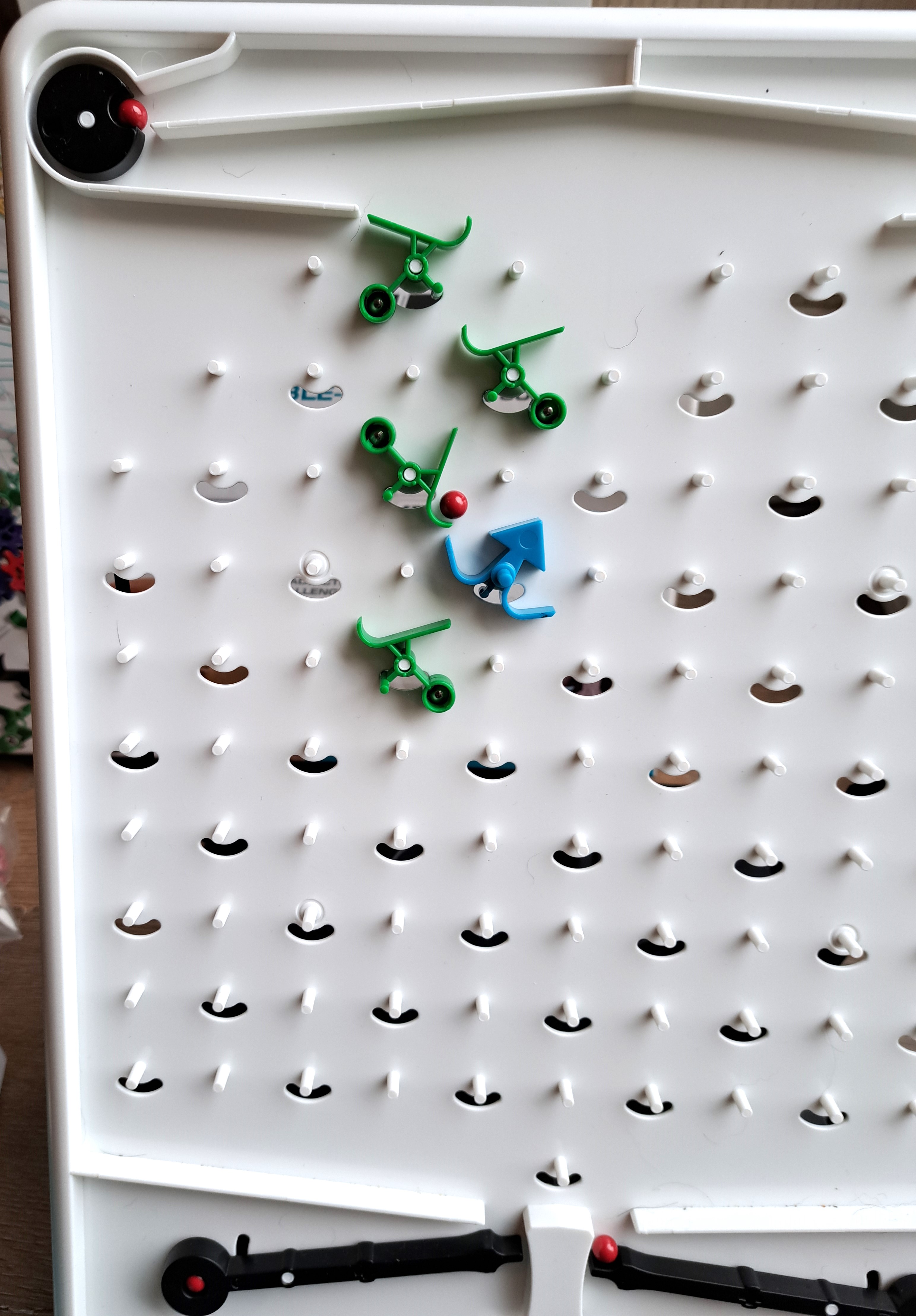
-Learn about Solving Mathematical Problems: "GNU Octave" from John Eaton et al.
Players: 1
Recommended ages: none listed
Time to play: 30+ minutes
Paid: Free online download
Solving mathematical problems with software is a MUST for a STEM career, particularly in engineering. Many people
use Matlab, but Matlab requires a
license. Octave is similar to Matlab but free to download and use. Octave is very powerful and well-worth learning
how to use.
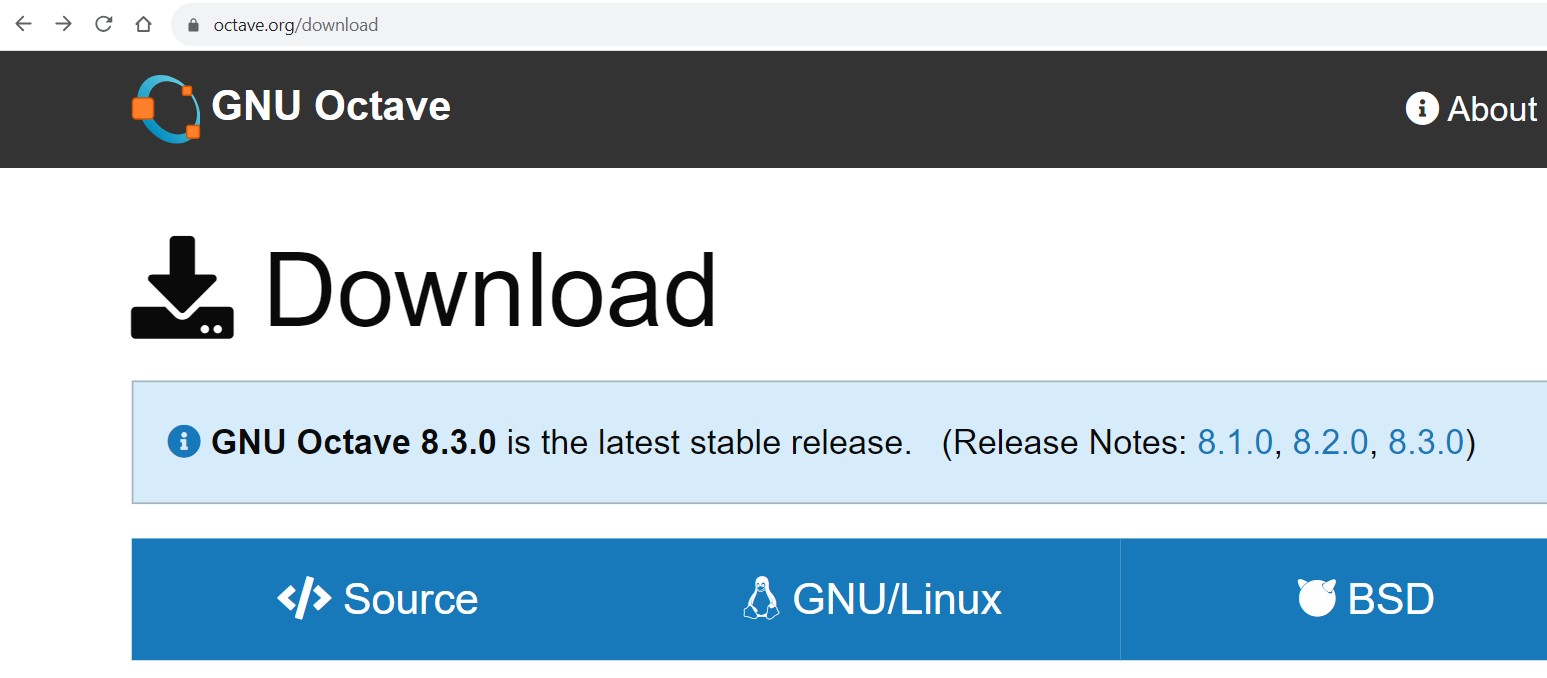
This website was created in October 2023 based on what was available at the time and what my children have enjoyed. There will doubtless be other games and activities you have also enjoyed. Please leave comments on the YouTube video above if there is something you think should be added to the list. Thank you for reading!
Other Articles:
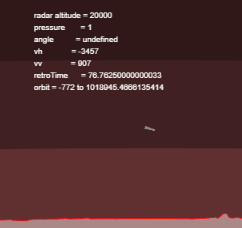
|
Mars LanderAn interactive simulation of a Mars Lander trying to land on Mars. The term "interactive" here means that you have to write the software, in Javascript, that will land the probe. |
Maths Exam GeneratorAuto-generated maths exams, with and without answers. Set at A-level / end of high school / beginning of university. |
